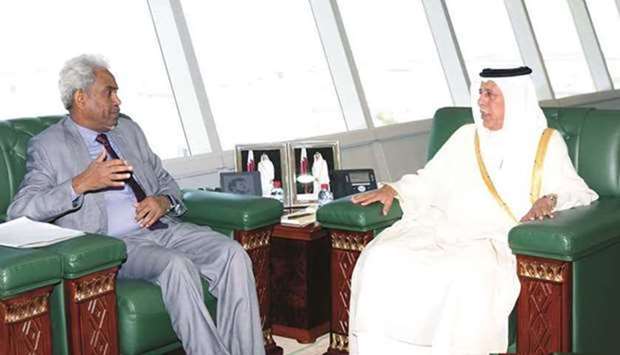The great role played by Qatar in supporting the peace process in Darfur and achieving stability and comprehensive peace in Sudan has been lauded by the head of the Darfur Peace Office, Majdi Khalafallah.
In a statement to the Sudanese radio on Friday he said that the ongoing Qatari support enabled the Sudanese government to consolidate peace in Darfur and fulfil its commitment to peace.
Khalafallah affirmed that the Doha peace document is the basis of the peace process in the region. It is a comprehensive and open peace document for everyone who wants to join the peace process, he pointed out.
The head of the Darfur Peace Office stressed that the reality now in the Darfur region has defeated the agenda of those who sought to prolong the conflict at the regional and international forums and their attempts failed in the face of the global progress in support of the peace process in Darfur.
“This has resulted in the presence of a positive global media coverage that refuted the slander against Darfur by presenting the positive developments that have taken place,” Khalafallah said.
The peace process in Darfur exceeded all the effects of war and violence and moved to the development prospects, he noted.
Khalafallah explained that the Darfur Peace Office is following up the implementation of the course of the Doha peace document, out of which more than 85% of its items had been implemented.
“The work of the Peace Commissions in Darfur in the areas of voluntary return, land, justice, reconciliation and security arrangements are as provided for by Doha peace document in close co-ordination and follow-up of the Sudanese presidency.”
The Doha Peace Document was signed by the Sudanese government and the Liberation and Justice Movement on July 14, 2011 in the presence of representatives of Burkina Faso, the African Union, the United Nations and Qatar, which mediated between the parties over 30 months of negotiations.
The document includes an essential element to resolve the Darfur crisis, which is the sharing of wealth and power between the Khartoum government and the Darfur movements, as well as addressing key issues of the armed conflict in the region, such as compensation for the displaced, asylum and the administrative status of the region, where it was decided to conduct a referendum to resolve the identity of Darfur, being a single province or states.

HE the Deputy Prime Minister and Minister of State for Cabinet Affairs Ahmed bin Abdullah bin Zaid al-Mahmoud meets with Sudanese presidential envoy for diplomatic contact and negotiation for Darfur Dr Amin Hassan Omar. October 1, 2017 file picture.


